I haven’t wanted to write for months out of fear that it will be bad. I am also experiencing all the symptoms of burnout. Often, when I am talking to someone, I find I forget where I was going with my sentence—I suddenly run into the pristine glass of the edges of my mind, a bird caught in a farce, and drop all of the words left in my thought. I doze in the middle of the day, drawing the shades even though I am wont to rest in the the patchy sunlight, unfocused in the aperture of our old, drippy windows. I forget to drink most of the pour over that I take so much care to make each morning and feel my own leaden shadow climb the ladder in my chest.
Everything around me feels mechanical, cumbersome, difficult. I am bothered by the repetition of this particular sun bearing these days that click into place like an old habit, and the heat it brings objectifies me—all of us—into a body, carrying.
One of the telltale signs of my depression is that I will look at the leaves on the trees in the middle of summer and only be able to see the space in between them. I just see the branches instead of the many individual leaves that morph the trees from skeletons into lush veils capable of both dappling the sunlight and providing comprehensive shade.
But I will tell you about something that changed.
Last Sunday:
When I wake, I go on the porch and watch the sky turn until a bead of light rolls over the oak tree across the street. I have done this every morning since the weather warmed. I don’t know if it’s a Pin Oak or a Northern Red Oak, but I am trying. I am grateful to live somewhere with trees so tall that even something as uncomplicated as the light of a summer sun has to climb to overcome them. I am alone a lot right now, as far as people go. As I have done many mornings over the last two years, I let Merlin Bird ID run on my phone until I capture a new birdsong. I don’t often go back and listen but feel satisfied to have collected something new. The first one that deviated from the normal 8 a.m. roster of the year was a Chimney Swift, with its wheezy staccato of a whistle, sometime in late April. I commodify my deepening relationship with nature in this way, and I feel richer for it. I am investing.
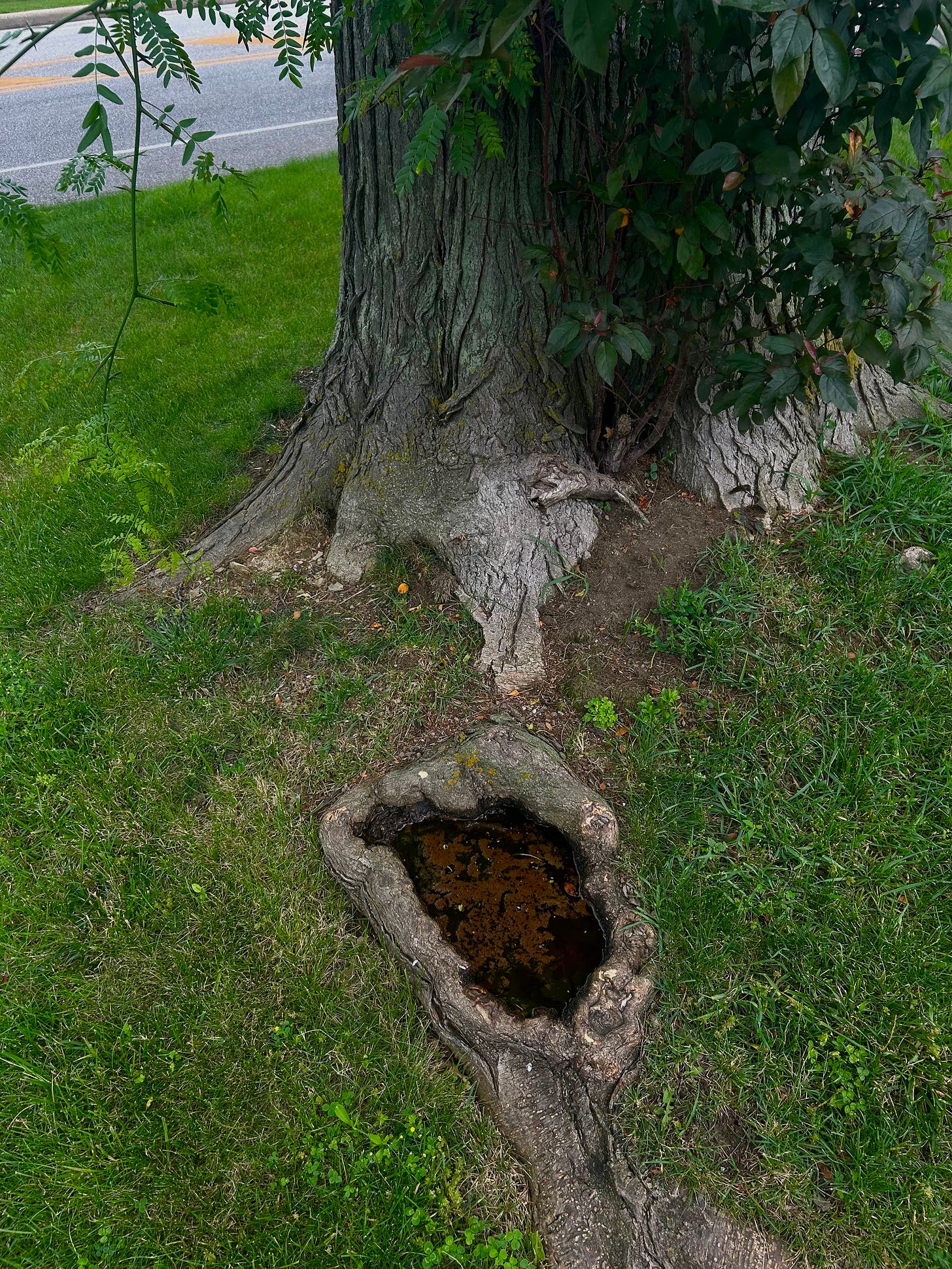
Once I am more awake, I return my attention to the trees and try to name the ones I can see from my porch. When I don’t know one—a medium-tall type with gaunt, pale tendrils contrasted upon verdant spade-like leaves—I send a blurry photo to my friend who is an environmental scientist. He tells me it’s a Little Leaf Linden. I commit it to memory and point one out, days later in St. Louis, to my other friend who also cares for the incidental characters in our natural world that we often overlook in our pragmatism.
Friday-Monday:
There is a distinctly estival turbulence that buoys the plane from Cleveland to Detroit, then again to St. Louis. It eases slightly as we lower over the Missouri and Mississippi Rivers. We descend into a stringent heat.
My friend and I walk up and down streets midday, our phones overheating and forcing us to double back in search of the correct direction. There is no mental maneuvering that can acclimate us, even with a devoted psychosomatic sensibility, so we concede and let our sweat soak through our clothes. This is what we wanted in February—if we must be limited by the corners of our seasons, at least the meteorological strictures of summer are better suited to our warm-blooded nature. The humidity embosses us against the air, we flatten when we enter the manufactured cold of a bookshop and fill out upon exiting. Our damp bangs and melted iced lattes are a dramatic retelling of the conditions.
This extreme heat has superimposed a kind of absurdity, and we lean into it with a youthfulness that this total submission to nature has revealed in us. We decide to move with childlike wonder, and we abandon any semblance of composure. This is how the rest of our weekend goes.
We do as we please, standing in the aisles of several bookstores, trading titles with each other. We are searching for relief in books that appropriate our world into something more dystopian than what we are already living (sci fi) or books that remind us so precisely of the possibility to assign sentience to every single thing and propagate a new world (poetry). We buy books believing we will get to read them—our simplest defiant act.
At her house, she shows me her garden. I follow behind as she hilariously shoves different leaves into my mouth, telling me that they should taste like cucumbers or lemon. I famously hate salad, but everything she picks for me is delicious.
We stand out back each morning and evening to watch her dog, Petunia (whom I love almost as much as my own dog), run the length and width of her yard. I eventually stop putting on my sandals and relish feeling the plush of the clover on every part of my feet. And each morning, we are excited to see the empty pans that held corn eaten by the two young bucks we ogled at the night before. This is our meditation.
The greater St. Louis area seems to be filled with Tulip Poplars, a tree we identify on our own with search engines. Its leaves look like maple leaves to me, but they have thicker fingers, like they are made of three fat thumbs. Our speculation is later confirmed, analog-style, by an older man who overhears us as we try to identify them (now out of the context of her house and too hot to use our phones) while walking through Tower Grove Park.
A different morning: it is 90° by 9 a.m. and we are hitched on the back of a tractor at a fruit farm up the Mississippi in a different small Midwestern town from hers. We pick peaches, thumbing for the right tenderness, passing one back and forth to sample. The fuzz sticks to the corners of my mouth. These peaches are sincerely themselves: large, fragrant, syrupy. We are trucked to the black raspberries and pluck them in small handfuls, popping every couple into our mouth. The leaves are sticky and pinchy as we twist the berries from their bush. We delight in knowing we will have a brimming container of the ripest fruit. This is our game, and the prize is a cobbler with ice cream that we will eat warm and crosslegged on the couch in front of the TV. We are toted back, and we find the heaviest tomato in the farm’s store and buy it. We will have tomato sandwiches the rest of the weekend, some with dill and basil we pick from her garden.
Later, we go to a water park. It is ungodly hot. We sit on the steps of a pool with slides and a giant bucket that periodically fills and dumps water on the swimmers. We decide to pretend we are with a child so as not to draw attention to the fact that we (physically) are not children. We occasionally call out a name I hear a lot having just registered so many children for summer reading at work. We stay for hours, wading in and out of the pool, trying to read in between dips. We eat french fries from the food stand. We wear so much sunscreen that we do not burn, but hold the warmth of the day between our skin and our bones.
In the late evening, we decide to go to the cemetery and bring the dowsing rods from the ghost hunting kit we checked out from the library the day before. We Google the location of the most famous person in her town (Robert Wadlow) and sit on his grave and ask him questions. We laugh at how we ended up here on this soft grass in a cemetery at 10 p.m. on a Sunday, hoping for confirmation of solidarity in the humanitarian crises and political matters from the ghost of a man who died nearly 90 years ago. We go back to her house, back to the line where the wood begins, and we spook ourselves into more laughter. We run from the void of the trees, and I trip and skin my elbow somewhere between. Nature is healing.
We will remark later, once I am back home, a day’s worth of travel away (and incredibly overheated in our respective cities), that the joy of being in each other’s presence made us immune to the weight of this heatwave.
In the very earliest hour of Tuesday morning, I arrive in back in Cleveland after this short deviation from my own mundanity. I wonder if I have maybe mistaken the repetitiveness of my life as routine. I wonder if the consistency of the heat, knowing my blood will match the air outside, even for a few months, could let me inhabit this childlike wonder a little longer, let the large parts rest a bit. It makes sense to me, at least.
꧁ ꧂
Thanks for reading all of that <3





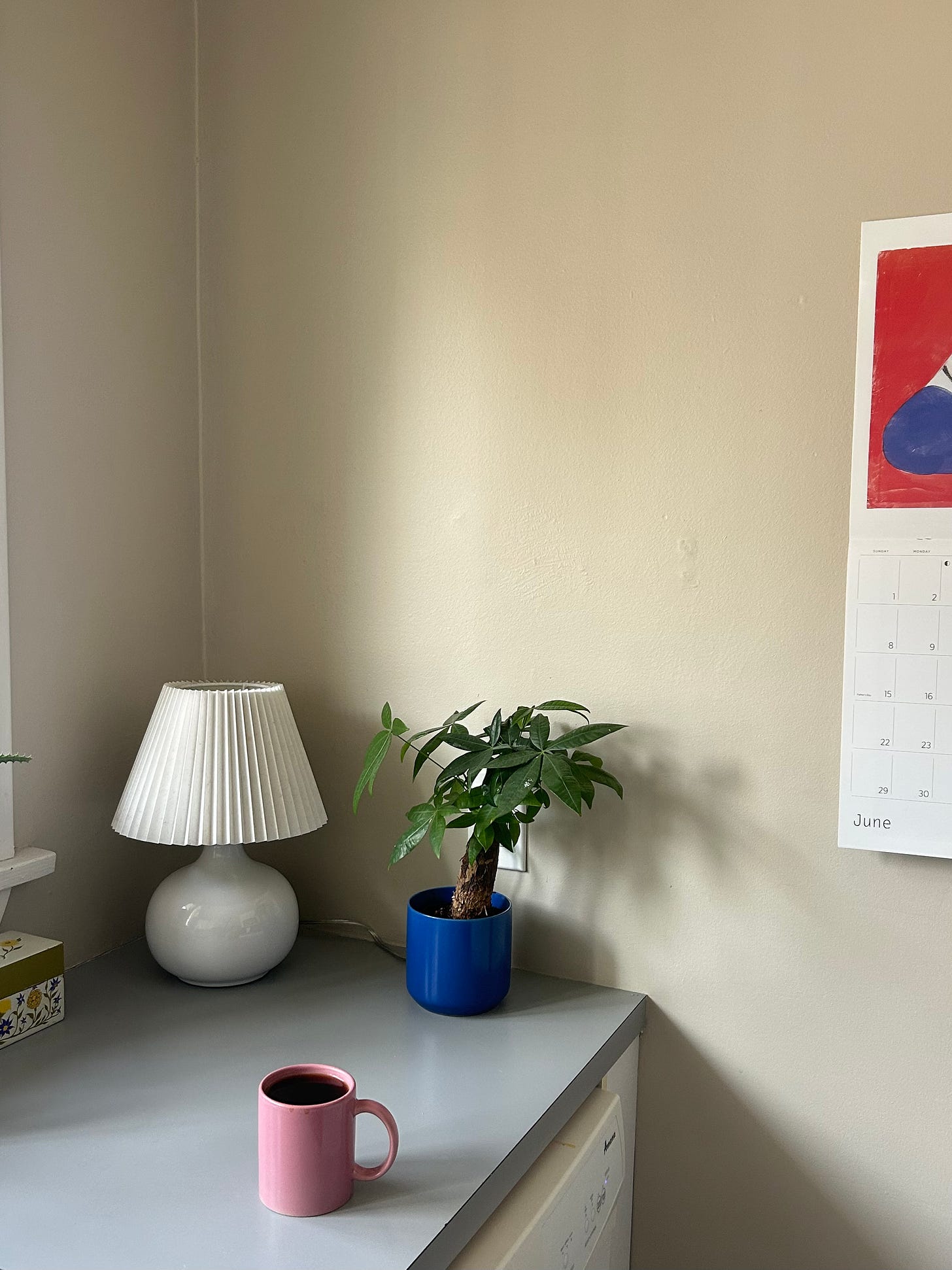

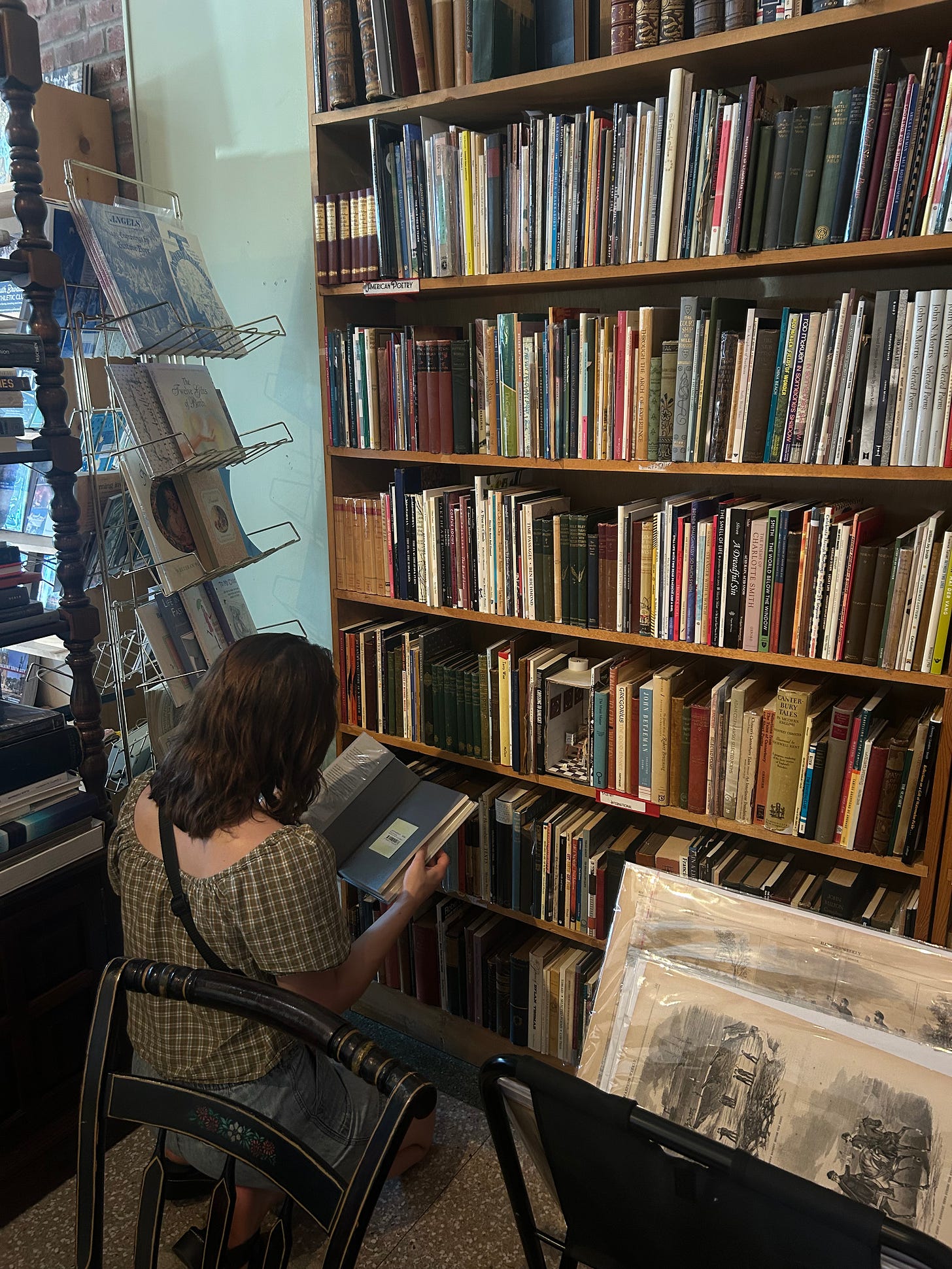

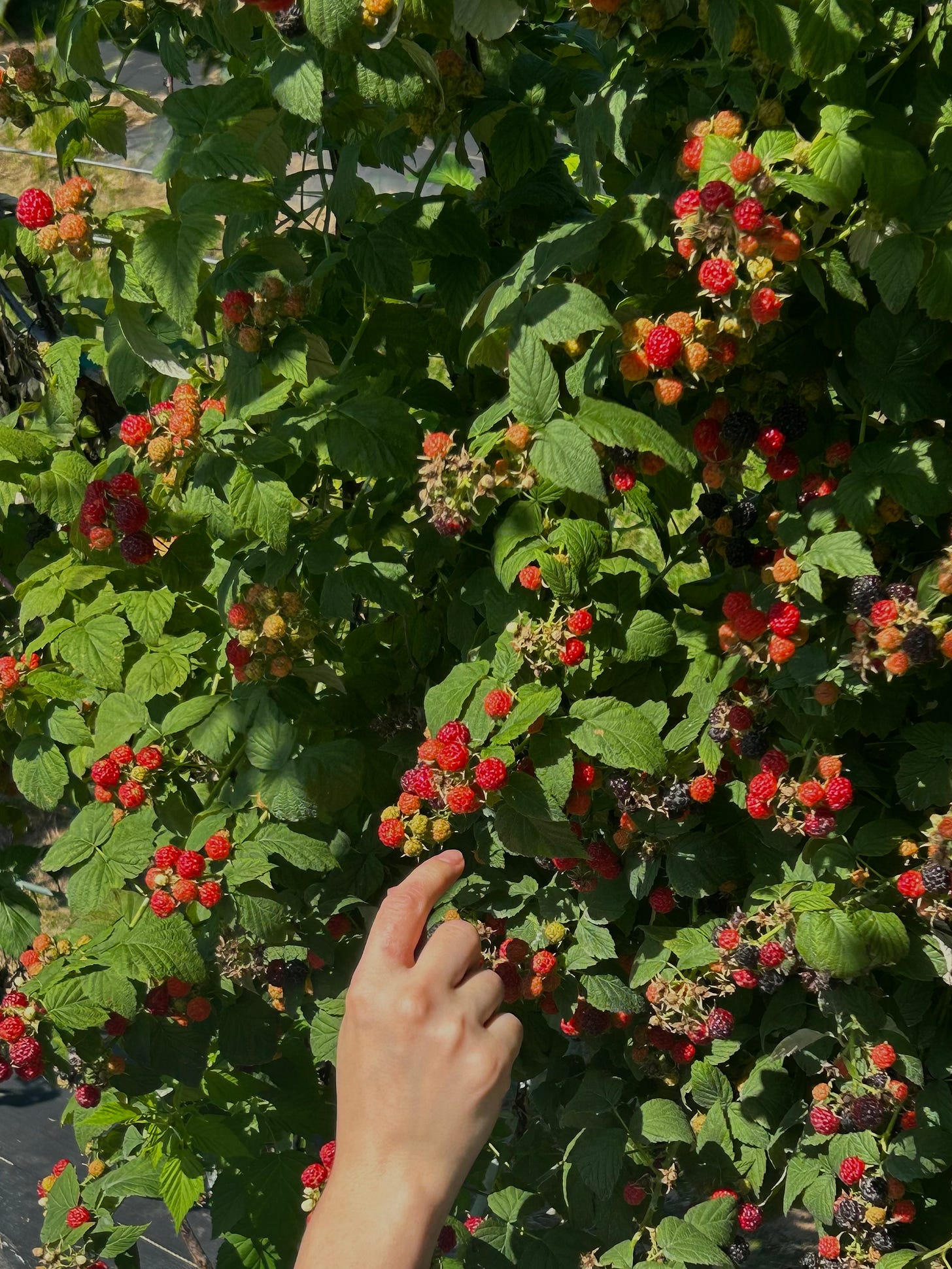

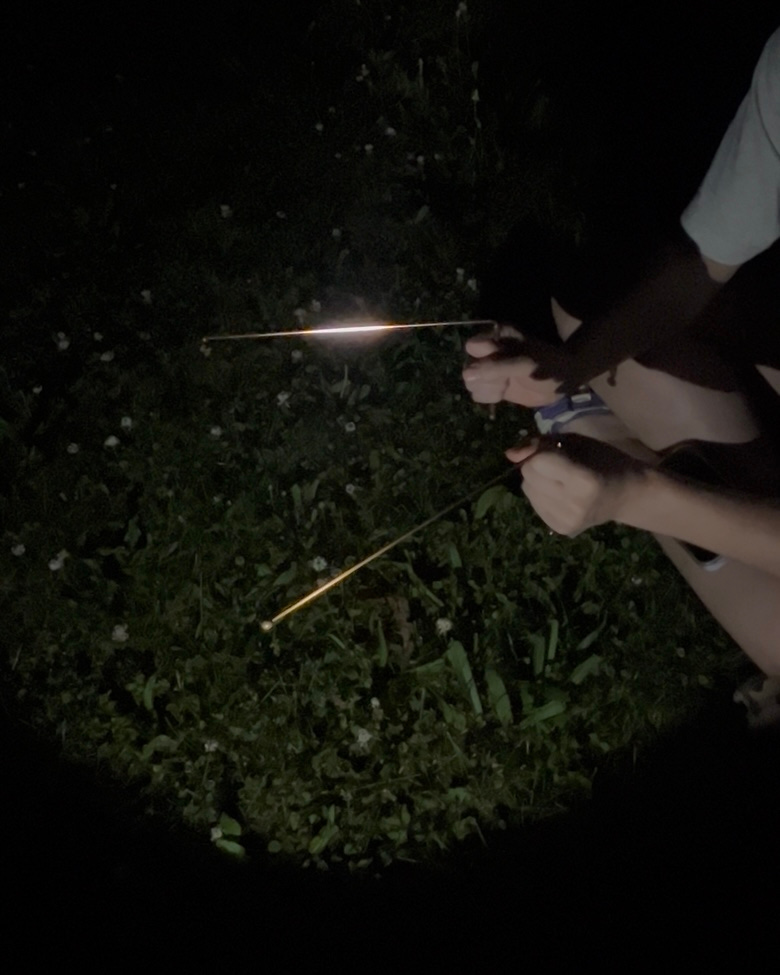
That was obscenely beautiful omg
Wow. Thank you for sharing this. There are so many sentences and portions here that tickle my brain in a way I didn't know I craved; you have a knack for writing that inspires me! (And I am immensely happy that I discovered your Substack through instagram—came for the outfits, stayed for the impeccable writing (and outfits and books etc).)
Sending love and cool gusts of wind <3